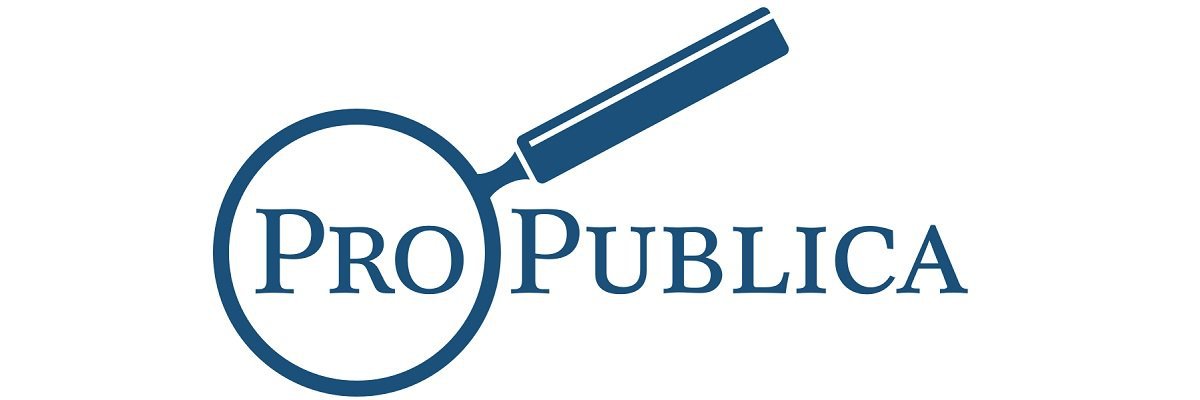
Julia Angwin joined ProPublica in January as a senior reporter. Previously she worked as an investigative reporter at the Wall Street Journal, where she started 2000. In 2003, Angwin was part of a team that won the Pulitzer Prize in Explanatory Reporting.
For her new book released this week, “Dragnet Nation: A Quest for Privacy, Security and Freedom in a World of Relentless Surveillance”, Julia filed a Privacy Act request for her border crossing records that revealed that the WSJ’s travel agency had been sending reporters’ “purpose of travel” info to the governmen. In this week’s Requester’s Voice, Angwin stresses the importance of finding a person within an agency to help your requesting, and dissects a little game that journalists play with one another.
Where and when did you first learn about requesting public records?
I believe that my first experience with the Freedom of Information Act or public records was when I was a young reporter at the San Francisco Chronicle in the mid 90s. I had been working in Washington D.C. covering Capitol Hill for a wire service and I came out to the Chronicle to cover Silicon Valley.
One of the first things I noticed was, Where are the black people? I don’t see any black people here.
I told my editors that I wanted to do a story about diversity and Silicon Valley. I ended up doing a FOIA request to — I think — the U.S. Equal Opportunity Commission for records of government contractors in the Valley and their compliance with diversity requirements.
That led to a series I did at the Chronicle called The Digital Divide. At that time, I don’t think “digital divide” was used widely. Now it kind of means people who don’t have access to the Internet. But I actually meant it to mean that these tech companies were not recruiting in ways that would lead them to have a more diverse workforce.
So I went to a recruiting fair at some minority college and the Intel table was empty, no one was staffing it. I did things like that that showed how they could’ve stepped up their outreach.
I didn’t go to journalism school, so I was basically self taught. I think the way I heard about public records was in the newsroom when I was talking to editors about how I wanted to approach this story and they said you should try public records. From there I sort of figured it out on my own.
And as anyone who has used public records knows sometimes — not always — you can find a good ally at the agency. And in this case I remember there was someone in the agency who helped me figure out how to write a FOIA and the right way to do it.
That’s a lucky break, you don’t always find people like that.
Tell us about some of your favorite requests.
There’s so many. My favorite in terms of the results was the story I did in 2012 on the National Counter Terrorism Center. I had heard a tip that there was a dispute about the data that they wanted to collect. They had gotten a ruling from the Department of Justice that allowed them to collect massive quantities of data about innocent Americans in order to analyze them for terrorism clues.
Now this was pre-Snowden revelations, so it seemed really exciting because we were all under the impression that mass surveillance was not actually that pervasive and mostly agencies were looking at actual suspects.
This was the ideal state for a FOIA: to have a specific tip and someone who provided me with the information to file an appropriate FOIA. I needed to ask for the records about the debate over this particular set of guidelines that were issued on this data. That was a wonderful way to do a FOIA and I wish that I was more often in that situation.
So the records came — after almost nine months — and were very revealing about this debate. The Department of Homeland Security had been fighting tooth and nail to basically not agree to these guidelines because they felt that they would be very invasive to the lives of innocent Americans. And DHS lost that fight, but it was only because I was able to get all the emails — even though they were redacted — I was able to find enough clues that I could reconstruct how the debate had played out in the White House.
My favorite FOIA, my favorite, favorite FOIA: One time I’d heard that someone was FOIAing my FOIA requests. So I FOIA’ed their FOIA of my FOIA. That was with the Federal Trade Commission, just for my own amusement. I wanted to know which competitor was trying to find out what I was doing.
So this was another journalist trying to scoop you? I don’t think we’ve seen that yet.
Oh yeah. You don’t know about this? This is like a game. You can go and say, “I want all of the most recent FOIA requests and what they were for and who they were from.”
In your current work how often are you filing? Are you focusing on any topics in particular?
I’ve been covering privacy and surveillance issues for the past four years. I just started at ProPublica in January of this year. (I was at the Wall Street Journal for 14 years before that.) I am just figuring out where I’m going to go with my FOIAs here.
How well do you think FOIA serves journalists as a tool?
I wish that FOIAs could be the whole story but the fact is that filing a FOIA is one part of a very long reporting journey. I basically feel that you can’t put all your eggs in the FOIA basket because they’re so unpredictable in terms of how quickly you’ll get a result or how complete the result will be.
I see it as one of many tools that I throw at a story and then I hope that one of my tools works: reporting, FOIA, technology (I often like to work with programmers who scrape data off the web for me).
One thing that I’m finding is so difficult these days is that more and more often agencies just give you a blanket “no” and then expect you to sue. We just don’t have the resources here — or at the WSJ — to sue over every FOIA. So I find that I’m picking my battles more carefully because I expect them to be costly.
What advice can you offer from the FOIA trenches?
One thing I don’t think I realized is that there are plenty of steps that you can take before litigation.
I wish I had started writing appeals earlier, and appealing administratively. Most agencies have some sort of administrative appeal process. I find those can be quite successful. So always try to pursue that.
Another tip is it’s incredibly important to find a person to talk to who can be your champion. One FOIA that I’m really proud of was to the Riverside County Sheriff’s Office. I asked for the full license plate reader database of any plate they had ever collected. I had tried that at several different police departments in southern California because they were all among the earliest to adopt this technology, and I wanted to see how much are they tracking.
To do that you need the whole database. But it’s a difficult ask because it’s very privacy invading, too. I found that the guy who ran the public records office at Riverside County was very agreeable. He was willing to talk on the phone and discuss how this data could be released in a privacy protected way. We were able to come up with a strategy that worked for both of us and it was really only because I developed a relationship with him over the phone. Trading letters written by our lawyers wouldn’t have gotten us to the conclusion we reached.
So I think it’s important to reach out and treat a FOIA project like any other reporting project where you try to develop a relationship and report it out.
I go back and forth on how broad to make your FOIAs. I basically feel like I have regrets every time. (This is actually a non-tip, I guess.) When I write requests too narrowly, I regret not having asked for more if I get something back quickly. If I write them too broadly, I regret it because I don’t get anything back, or it takes forever and I feel like I screwed up.
I guess I would just say it’s an art, not a science.
What would bring about meaningful change in government openness?
I have heard — and I don’t know because I haven’t tested it myself — that the declassification board in D.C. is a much better process than FOIA.
What I’ve been told, by someone who is a member of the board, is that it is people from different agencies who are in their declassification office. When a request comes to that board, they all decide together about how to respond. This person was telling me that it’s a much better process. The reason is that the peer pressure of having to defend to people at other agencies a decision not to release a document forces a little more honesty.
So I guess that’s a way of saying that I believe that more oversight and transparency about the way that decisions are made would be really helpful. If you watch what’s going on with the NYPD right now where they won’t turn over anything. It’s clearly discretionary. It needs oversight. And I think that peer oversight is one of the most effective forms of behavior modification.
Forcing the people who are in these FOIA offices to defend their decisions to their peers and other parts of the government would, I think, be a pretty meaningful and not difficult reform.
Image via Wikimedia Commons




